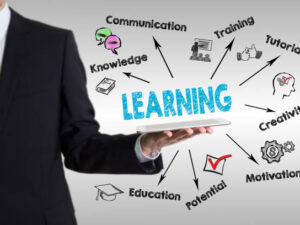Entering the world of real estate can be an exciting venture, but success hinges on the foundation laid by a robust education. Real estate schools are instrumental in honing the skills of aspiring agents and professionals keen on navigating this dynamic industry. Whether you’re looking at starting a new career or expanding your existing real estate knowledge, deciphering the educational landscape is essential.
Real Estate School Programs
Real estate school programs are the launchpads for ambitious professionals eyeing the real estate horizon. These comprehensive educational pathways delve into the intricacies of property laws, sharpen market analysis acumen, and refine sales techniques. Diving into these programs means not just theoretical knowledge but practical skills for real-world applications.
Comprehensive curriculums encompass licensing courses mandated for realtor certification, with a keen eye on continuing education to ensure practitioners remain conversant with evolving regulations and industry best practices. With a blend of online and in-person class offerings, these programs cater to diverse learning preferences, guaranteeing that even the busiest schedules can accommodate professional growth.
Courses within these programs cast a wide net, touching upon critical topics like property valuation, ethical practices, and the financial underpinnings of real estate transactions. With this educational investment, both newbies to the real estate game and veterans stand to gain invaluable insights and abilities.
- Property Laws and Regulations: Learning the fundamentals and nuances.
- Market Analysis: Gaining tools to assess and predict market trends.
- Sales Techniques: Mastering the art of negotiation and client relations.
Real estate school stands out as not just a stepping stone but a significant value-add for career progression in the real estate domain.
Real Estate School Requirements
Embarking on this educational journey calls for meeting certain prerequisites. Typically, those looking to enroll must be adults, usually at least 18 or 19 years old, depending on the state. Moreover, it’s generally expected that candidates hold a high school diploma or equivalent.
Before committing to a program, it’s prudent to ensure the real estate school’s accreditation and that it fulfills the state-specific educational criteria for licensure. Pre-licensing courses familiarize students with the bread and butter of the profession—property laws, contracts, finance, and fundamental real estate principles.
Following the culmination of coursework, the pivotal moment arrives—passing state-administered exams to secure that coveted license and step confidently into the real estate arena.
- Minimum Age Requirements: Often 18 or 19 years old.
- Educational Background: A high school diploma or equivalent.
- Coursework Topics: Covering essential real estate knowledge.
Real estate education is the bridge between raw ambition and professional accomplishment in the realm of property sales and management.
1. What Programs Are Offered at a Real Estate School?
Real estate schools cater to a spectrum of learners, from novices preparing for their initial licensing to seasoned agents focused on continuing their professional development.
Programs range from core pre-licensing courses, aimed at new agents, to specialized continuing education for established professionals looking to refine their expertise in niche areas such as commercial real estate and property management.
Additional specialized programs, like the Certified Residential Specialist or Accredited Buyer’s Representative, help real estate professionals further differentiate themselves in a crowded market.
The advent of online and hybrid course offerings has made these programs more accessible than ever, accommodating varied learning styles and life circumstances. Furthermore, dedicated exam preparation courses with comprehensive materials hone students’ readiness for licensure.
- Pre-licensing and Continuing Education: A spectrum of courses meeting diverse needs.
- Specialty Training: Programs for niche areas in real estate.
- Exam Preparation: Materials and courses tailored for licensure success.
Real estate schools provide an arsenal of resourceful programs for determined learners aiming to leave their mark on the real estate landscape.
2. How Long Does It Typically Take to Complete Courses at a Real Estate School?
The journey through real estate education can vary significantly in duration. Courses might span a few intense weeks or spread over several months, depending on the program’s rigor and the learner’s commitments. Full-timers might blaze through pre-licensing education within a month or two, whereas their part-time counterparts might take considerably longer.
States dictate the pre-licensing education hours required, influencing how swiftly one can progress. Accelerated programs court those hungry for speed, but flexible schedules also exist for working professionals juggling numerous responsibilities. The self-paced nature of online courses adds another layer of variability—students set the cadence, potentially abbreviating or extending their study timeline based on personal commitment.
- Course Duration Variety: From weeks to several months.
- Full-time vs. Part-Time: Based on students’ availability.
- State Pre-licensing Hours: State-mandated education hours shape course lengths.
3. Are There Online Learning Options Available for Real Estate School Students?
In the digital age, online real estate schools have emerged as bastions of flexibility and convenience. Acknowledging the varying needs of their students, these virtual institutions serve up comparable coursework to traditional classroom settings, backed by high educational standards. They bring interactive tools and video lectures into homes and offices, while also offering support through remote access to instructors.
Self-paced study options resonate with those balancing education with other life obligations. With accreditation recognized by professional licensing bodies, these online programs stand tall, offering aspiring real estate professionals a legitimate and adaptable route to achieving their career objectives.
- Flexibility and Convenience: Catering to diverse student needs.
- Immersive Virtual Experience: Interactive and comprehensive course offerings.
- Accreditation and Recognition: Authorized by professional licensing boards.
Online learning in real estate education offers a modern, flexible approach for those aspiring to join the industry’s ranks or elevate their current position.
4. What Are The Educational Requirements For Enrolling In A Real Estate School?
Standing at the threshold of a real estate education, certain prerequisites must be met. A high school diploma or its equivalent typically serves as the baseline for admission into these programs. Age also plays a determining factor, with most states insisting that students are at least 18 or 19 years old.
Additionally, a clean legal record, evidenced by a background check, might be required, reflecting the profession’s high standards of integrity. Pre-licensing education is another box to tick, with specific hours mandated by the state. Prospective students must navigate these state-specific waters to ensure they meet all the requirements before embarking on their real estate educational pursuit.
- Diploma or Equivalent: A basic educational foundation.
- Legal Background Check: Upholding industry integrity standards.
- Pre-licensing Education: Meeting state-mandated educational requirements.
A sound understanding of the educational requirements is the first step towards a promising career in real estate.
5. Can Attending a Real Estate School Help Me Prepare for the Real Estate Licensing Exam?
Attending a real estate school is more than a formality; it is an investment in one’s professional future. Schools provide deep dives into the domains of property management, contract negotiation, financial literacy, and ethics—all crucial areas for licensure exams. Expert instructors lead the way, illuminating the complexities of the field and offering invaluable test preparation resources.
Structured learning environments and exam-centric study materials increase the likelihood of passing on the first attempt, setting a solid baseline for a flourishing career in real estate.
- Comprehensive Learning: Covering critical areas for exam success.
- Exam Preparation: Resources and practice tests designed for optimal results.
- Expert Instruction: Access to seasoned professionals for insights and guidance.
A well-rounded real estate education ensures aspirants are primed for test-taking success, laying the groundwork for a successful venture into the property market.
Real Estate School Online
The digital revolution has made its mark on real estate education, with online schools offering unmatched flexibility for those striving to enter or progress in the real estate sector. These courses span the full gamertitutecks of traditional in-person classes without sacrificing the quality of instruction.
Virtual classrooms and discussions carve out spaces for collaborative learning, while interactive tools engage students in a way that mirrors the in-person experience. Moreover, the cost-efficiency and time-saving nature of online education is increasingly drawing busy individuals to this modern mode of learning.
- Learning Flexibility: Study at your own pace, from any location.
- Comprehensive Online Coursework: Equivalent to in-person educational offerings.
- Cost-Effectiveness: An economical alternative to traditional classroom settings.
Online real estate schools represent the future of education in the industry, bridging gaps and democratizing access to knowledge.
The Final Walkthrough: Real Estate School as Your Pathway to Success
Delving into a real estate school, whether online or in-person is a strategic move towards unlocking the doors to a rewarding career in real estate. The pathways carved by these programs are as diverse as the individuals who walk them—a fitting reflection of the property market itself.
With the right school and commitment, the journey through real estate education can be a transformational one, equipping you with the keys to not just navigate but excel in this competitive field.










